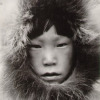Margaret Bourke-White

Margaret Bourke-White
Margaret Bourke-Whitewas an American photographer and documentary photographer. She is best known as the first foreign photographer permitted to take pictures of Soviet industry, the firsthand American female war photojournalist, and the first female photographer for Henry Luce's Life magazine, where her photograph appeared on the first cover. She died of Parkinson's disease about eighteen years after she developed her first symptoms...
NationalityAmerican
ProfessionPhotographer
Date of Birth14 June 1904
CityBronx, NY
CountryUnited States of America
You are responsible for what you have done and the people whom you have influenced.
By some special graciousness of fate I am deposited - as all good photographers like to be - in the right place at the right time. Go into it as young as possible. Bring all the asset you have and play to win.
The world was waiting to be full of discovery made(as a photographer) I could share the things I saw and learned.you would react to something all others might walk by.
Usually I object when someone makes over-much of men's work versus women's work, for I think it is the excellence of the results which counts.
The element of discovery is very important. I don't repeat myself well. I want and need that stimulus of walking forward from one new world to another. There is something demoralizing about going back to a place to retake pictures. You can no longer see your subjects in a fresh eye; you keep comparing them with the pictures you hold in your memory. [The] world was full of discoveries waiting to be made...(as a photographer) I could share the things I saw and learned...you would react to something all others might walk by.
To understand another human being you must gain some insight into the conditions which made him what he is.
I was to discover that the quest for human understanding is a lifetime one that has no end in sight.
It seems to me that while it is very important to get a striking picture of a line of smoke stacks or a row of dynamos, it is becoming more and more important to reflect that life that goes on behind these photographs. (1935)
If you banish fear, nothing terribly bad can happen to you.
The very secret of life for me, I believed, was to maintain in the midst of rushing events an inner tranquility.
The beauty of the past belongs to the past.
We are in a privileged and sometimes happy position. We see a great deal of the world. Our obligation is to pass it on to others.
Nothing attracts me like a closed door.
The camera is a remarkable instrument. Saturate yourself with your subject, and the camera will all but take you by the hand and point the way.